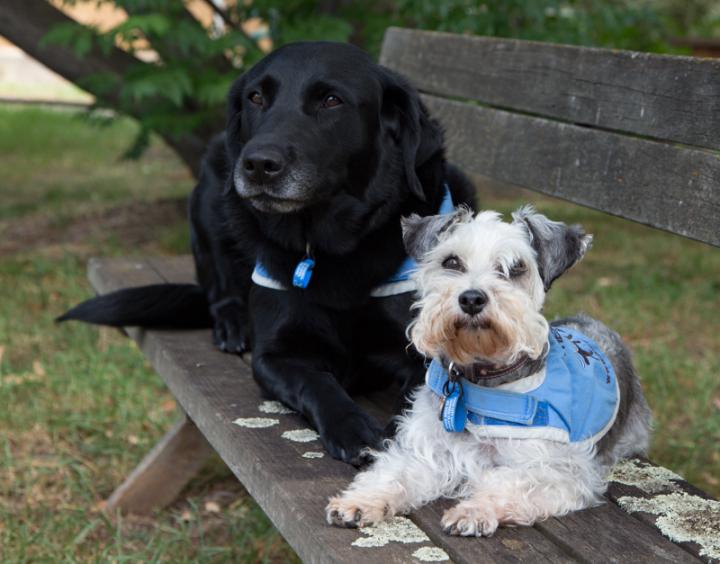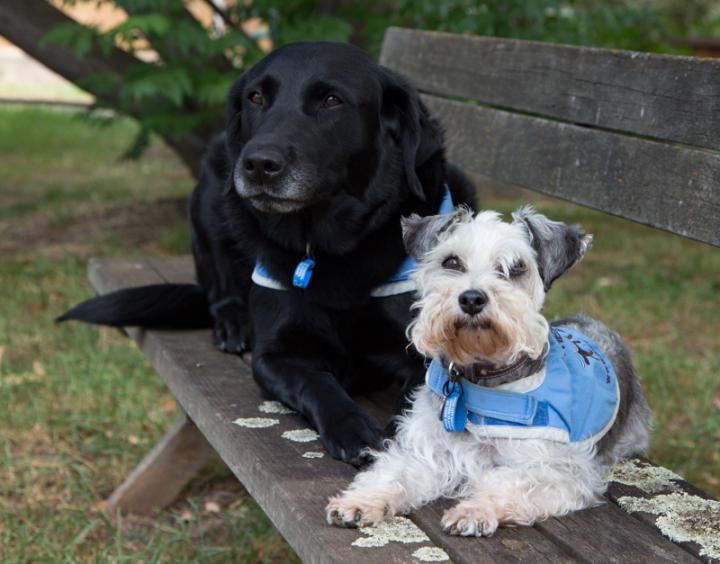
Credit: Orygen
The increasing use of therapy animals in Australia has prompted researchers from Orygen, the National Centre of Excellence in Youth Mental Health, to recommend the creation of Australia's first best-practice guidelines for animal-assisted therapy.
Therapy animals are used in the treatment of both mental and physical health issues, however this important form of therapy is not regulated, which leaves it open to misuse and misunderstanding by those who deliver it and the wider community.
Professor Sue Cotton, head of health services and outcomes research at Orygen, in collaboration with Dr Simon Rice and psychologist and PhD researcher Melanie Jones has made a series of recommendations to ensure animal assisted therapy delivers safe and effective patient care. The recommendations are published in the current issue of Australasian Psychiatry.
Ms Jones said there was a significant difference between therapy animals and emotional support animals.
"A therapy animal participates in a range of interventions in order to achieve a desired outcome, such as assisting people to engage and participate in an activity, right through to working with a client with severe trauma," Ms Jones said.
"An emotional support animal is a pet that resides with an individual and gives them comfort. And that's different again to service animals, which work to mitigate a disability."
Dogs are the most commonly used therapy animals, but horses, dolphins and even guinea pigs are also used.
Professor Cotton said the popularity of therapy dogs, particularly in mental health settings, was built on research and anecdotal reports indicating that friendly dogs could improve patient engagement and reduce anxiety. "However, although the presence of therapy dogs may be of benefit, that benefit might last only for as long as the patient and the dog are in contact," she said.
"It is not enough to claim the temporary reduction of anxiety while in the presence of a dog, for example, as treatment. Animal-assisted therapy needs to be combined with treatments such as trauma-based therapy or social skills training to be clinically effective. Although dogs may improve treatment, they are not a treatment in and of themselves."
The recommendations Professor Cotton and Ms Jones have developed around animal-assisted therapy include:
- The use of standard terminology to describe different types of animal-assisted interventions
- Development of clear methodologies for how, why and when to incorporate animals in therapy
- The establishment of peak bodies to aid the development of clinical guidelines, welfare standards and accreditation
- Ongoing research and evaluation of interventions.
Professor Cotton said the adoption of these recommendations would help to ensure animal-assisted therapies were safe and ethical and based on sound evidence.
###
Media Contact
Kim Taylor
[email protected]
61-304-325-70651
@orygen_aus
http://https://www.orygen.org.au/
Original Source
https://www.orygen.org.au/About/News-And-Events/2018/Guidelines-therapy-animals





